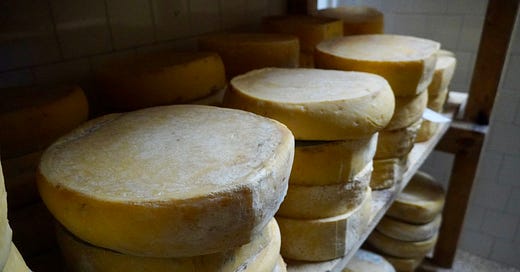This video goes with my last post about a visit to a cheese school in Serbia. To view in the vertical ratio, go into full screen.
I want to offer more of these retrospective looks at some of the cheese I have learned about over the last few years. I’m still on the fence about how much of this I want to put behind a paywall.
Check out this video from Albania to hear more about my thoughts on the matter of paid content, plus pastoral scenes.
This post from Macedonia includes an audio version with commentary, and a long video.
Editing video and audio is not a task I enjoy, although I do like sharing the results with you all. So I will make these as roughly edited, 10-15 minute deep dives, and speak somewhat off-the-cuff. I have a large archive of video, and want to share it as I am in the process of tying it altogether in my head and in written form.
Stretched curd or pasta filata is an amazing style, with analogues and variations across the planet. The technique not only leads to the specific texture, but serves as a control point on milk microbes and starter cultures in the application of high heat.
Have you tasted Kashkaval or similarly named cheeses in the Balkans?
In which countries have you come across or heard about other stretched curd cheeses?





Share this post